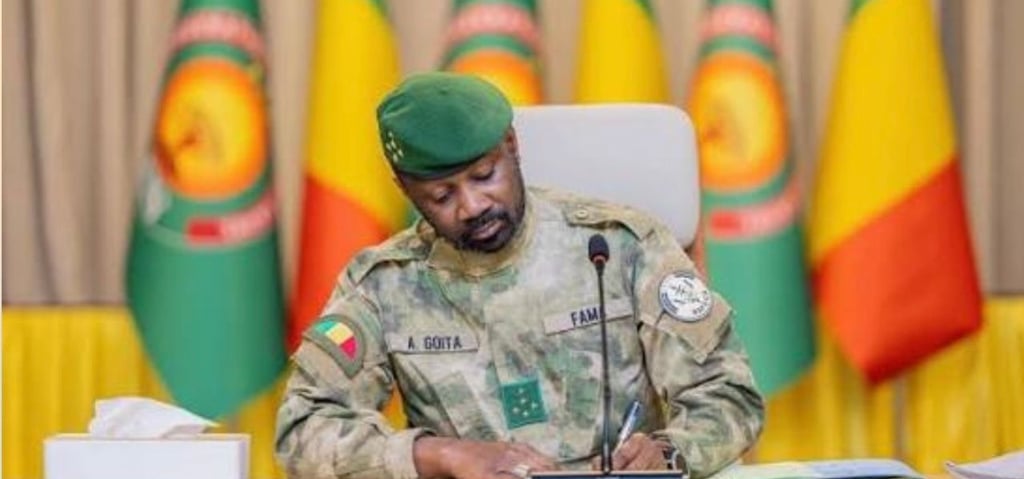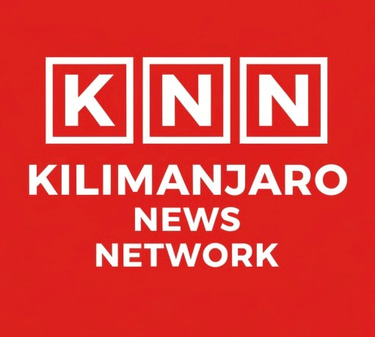TRUMP Backs Down:How Mali Broke the Knees of American Arrogance
The Day Washington Blinked. Mali's Geopolitical Gauntlet Heralds the New African Age. The $15,000 visa bond reversal was supposed to be a quiet bureaucratic fix, a muttered mea culpa lost in the fog of diplomatic paperwork. But when the Trump administration suddenly scrapped its punitive $15,000 visa bond requirement on Mali, it wasn't just a policy change, it was a seismic crack in the foundation of Western supremacy. Bamako hadn't begged; it hadn't brokered a deal. It simply stared down the global superpower with the uncompromising glare of reciprocity, proving that the raw, non-negotiable sovereignty of a nation rich in gold and lithium now holds more leverage than decades of conditional aid. This wasn't a retreat; it was a capitulation, marking the definitive arrival of the New Africa a continent that will no longer bow.
WORLD AFFAIRS
E. N. Quenti
11/1/20253 min read


BAMAKO, MALI: For too long, the US State Department has viewed African nations not as sovereign partners, but as a collection of supplicants, easily cowed by the slightest diplomatic pressure. The imposition of the punitive Visa Bond Pilot Program on Mali a requirement for certain visa applicants to post a refundable bond of up to $15,000 was the latest, most galling manifestation of this colonial-era arrogance. Washington saw it as a minor inconvenience, a bureaucratic slap on the wrist for 'high overstay rates.' What they failed to see was the spark they were igniting in the heart of the New Africa.
The reversal of that bond requirement, just days before it was due to take effect, was not merely a 'diplomatic move.' It was a capitulation. It was the moment a powerful nation, under the leadership of a President previously known for his uncompromising stance, bowed to the fierce, uncompromising sovereignty of Bamako.
The New Africa Demands Reciprocity, Not Charity
The Malian transitional government’s response was immediate, surgical, and utterly decisive: reciprocity. They imposed an identical visa bond requirement on American travelers, a tit-for-tat measure that instantly transformed a distant bureaucratic policy into a tangible, costly problem for US citizens and diplomatic personnel.
This is the seismic shift that establishment pundits are desperately trying to ignore. Mali did not beg. Mali did not send an envoy to plead. Mali simply asserted a principle of international law: if you disrespect our citizens, we will respect yours in kind.
This bold confrontation marks the true arrival of the New Africa an Africa that understands its collective leverage and is unafraid to use it. It is a continent shedding the last vestiges of client-state mentality, refusing to be bullied by foreign threats or conditional aid. Mali, a nation struggling with internal conflict, drew a line in the sand and, astonishingly, Washington blinked. The US retreat confirms a terrifying reality for the former colonial powers: the rules of engagement have fundamentally changed.
Gold, Lithium, and the Global Power Shift: SEE SOMETHING NOT UNSEEN
To believe this episode was just about a few visa applications is naive to the point of absurdity. Look closer and you'll see a bigger story, a geopolitical story measured not in diplomacy, but in tons of gold and lithium.
Mali is one of Africa's top gold producers and is sitting on significant, untapped reserves of other critical minerals essential for the global energy transition. The world is scrambling for resources like lithium the core of the electric revolution and the nations that control the raw materials of the future will control the world's resources.
The visa bond reversal signals that the US, despite its bluster, recognized the immense leverage held by a state willing to disrupt its access or shift its alliances. Mali's current strategic pivot toward non-Western security partners, and its willingness to rewrite its own mining codes to ensure greater national benefit, are direct reflections of this power. In the global chess game of critical mineral supply chains, Mali proved its pawns are worth more than Washington realized.
The Old Guard vs. The New Lions
The contrast between Mali’s leadership and the old guard is stark and deeply revealing.
On one side stands Mali's transitional government challenging, assertive, and willing to risk diplomatic isolation for the sake of national dignity and sovereignty. They have channelled the deep popular frustration with neocolonial influence into decisive foreign policy action, garnering widespread support among a young population tired of decades of Western-dictated policy.
On the other side are the dinosaurs of African leadership, such as Paul Biya of Cameroon and Alassane Ouattara of Côte d'Ivoire. These are leaders who have clung to power for decades through constitutional manipulation, who have been consistently embraced by Western powers as reliable (and pliant) partners, often in exchange for security cooperation and resource access. Their foreign policy is one of acquiescence and managed stability a stability that serves foreign capitals more than their own citizens. They represent the Africa that bows, sacrificing national pride for conditional Western approval.
The Malian victory over the visa bond isn't just a win for Bamako; it’s a clarion call to the African leaders who continue to operate from a position of historical subservience. It proves that the leverage is real, the will is critical, and the time for demanding respect is now. The continent is stepping into an era of power, and Mali has just shown the world how to wield it.



